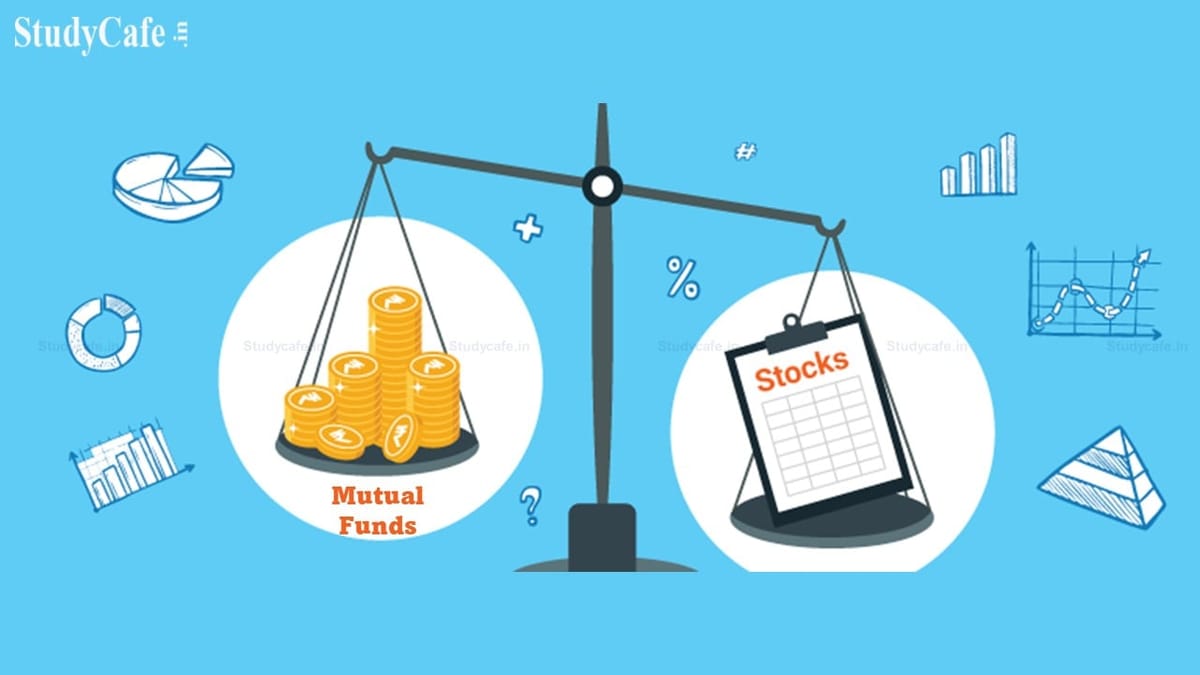Top 5 Differences between Stock and Mutual Funds Investing
Shivani Bhati | May 2, 2022 |

Top 5 Differences between Stock and Mutual Funds Investing
Mutual funds and stocks are the two most popular financial assets for investment. Many non-financial professionals, on the other hand, get the two notions mixed up. Today, we’ll go over the distinctions in greater depth to help you sort out any confusion.
Stock sales can be used to raise funds for a company. Stock trading is facilitated by stock exchanges such as the BSE, NSE, and others.
A share of a company’s ownership is represented by a stock (also known as equity). It permits stockholders to own a proportionate share of the company’s assets and earnings based on their ownership stake.
A mutual fund is a financial vehicle that pools money from multiple investors to invest in securities such as stocks, bonds, and other assets.
Professional money managers manage the fund’s assets in order to maximize capital gains and income for investors. The selection of a mutual fund is made and managed to meet the fund’s stated investment objectives.
1.Diversification
At least 25-30 companies that are difficult for a small investor should be included in a well-balanced portfolio.
Using equity diversified mutual funds, a mutual fund manager can assist investors in building a portfolio of various shares. You can buy units in the fund and invest in a variety of companies.
You can also use a systematic investment plan to invest in an equity mutual fund on a monthly basis (SIP).
2.Easy to Use
We are a technologically advanced age that thrives on instant information.
You can manage your transactions with the Best Trading App in India if you have a busy schedule and don’t have time to trade on the stock market. Keeping track of your stock is now as simple as keeping track of your company’s communications using the email software on your phone.
You’re probably aware with interest rates on traditional investments like fixed deposits. Mutual funds, on the other hand, are vulnerable to market swings on a daily basis. However, how will you keep track of them? Using a straightforward smartphone application.
3.Management
You are not obligated to manage a mutual fund once you have purchased it. That is something that the fund management team will take care of for you. Several fund managers are in charge of keeping track of mutual funds and selecting whether or not to buy or sell them.
On the other hand, it is your obligation to keep an eye on the stock market and make sure your money is safe.
4.Time Invested
If you want to invest for the long term, you should go with equities and mutual funds. However, you must know when to leave the stock market, which might happen in a single day.
If you want to invest in mutual funds to meet your long-term financial goals, you can use the method of buying and holding for at least ten years.
5.Tax
It is not possible to levy tax benefits on trading stocks. If you invest in tax-efficient mutual funds, you may be eligible for a tax deduction of up to Rs 1.5 lakh per year under Section 80C. These funds have the potential to outperform inflation while saving money on taxes.
In case of any Doubt regarding Membership you can mail us at [email protected]
Join Studycafe's WhatsApp Group or Telegram Channel for Latest Updates on Government Job, Sarkari Naukri, Private Jobs, Income Tax, GST, Companies Act, Judgements and CA, CS, ICWA, and MUCH MORE!"